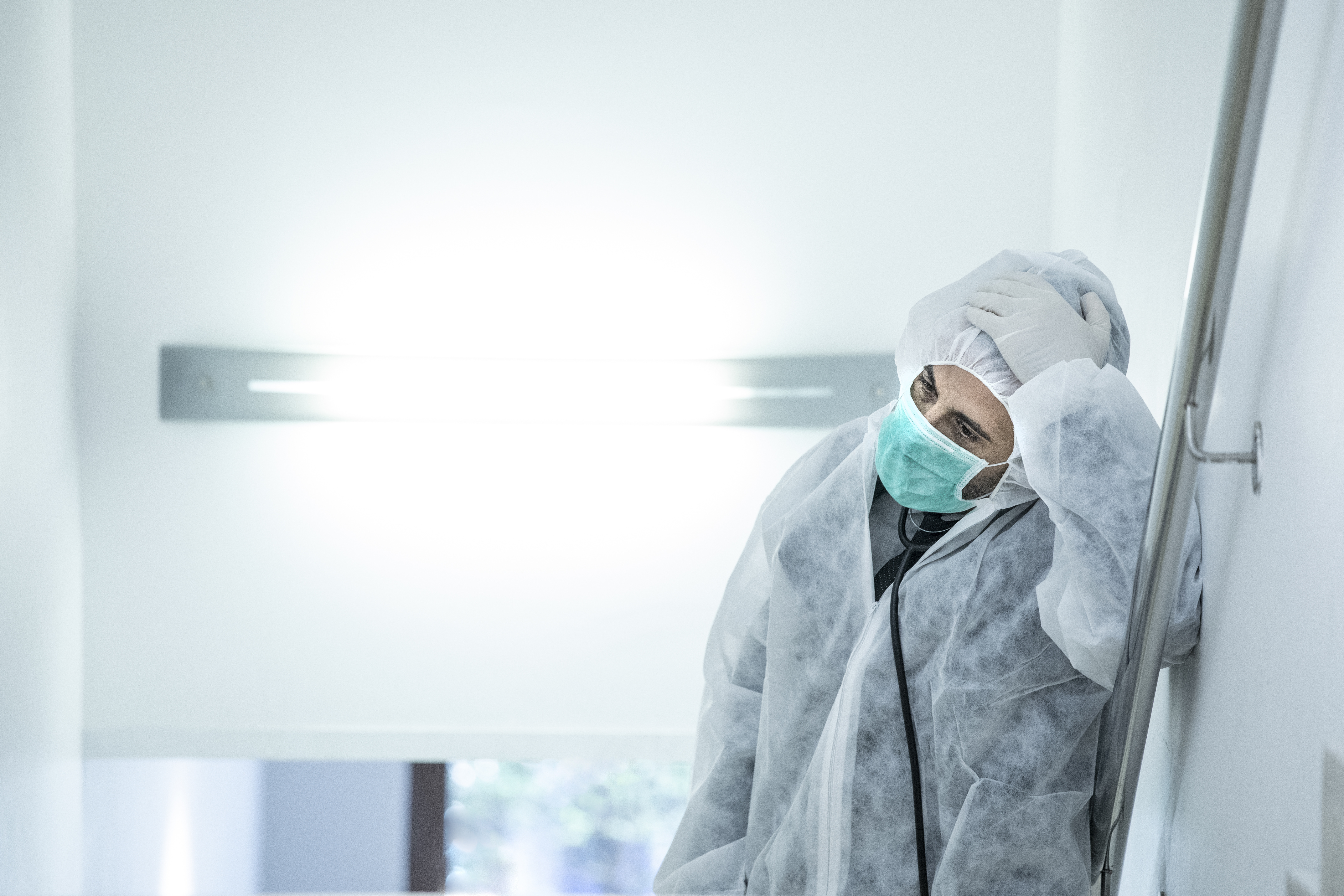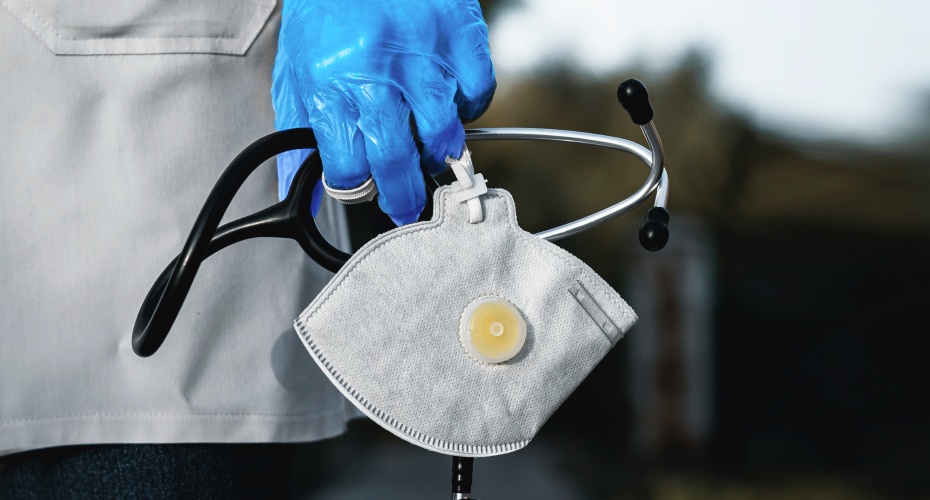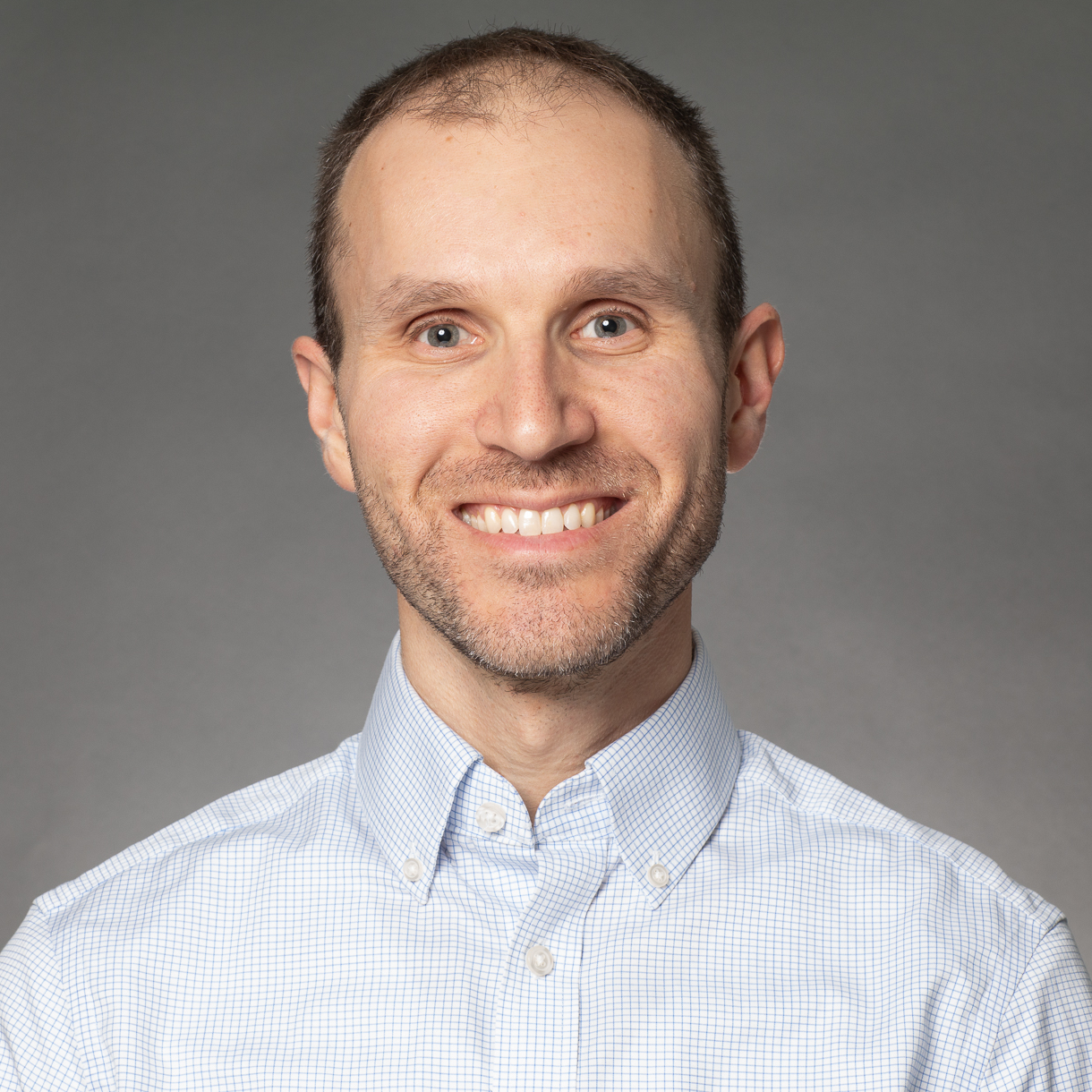Apr 5, 2020
Heroes on the front line: Dr. Lakshman Swamy
Around the world, physicians, nurses, nurse practitioners and physician assistants are on the front line of the battle against the coronavirus.
I have been talking with my colleagues at Massachusetts hospitals about their observations, and I will be using my Coverage column to allow them to describe, in their own words, just how much their jobs have changed over the past few weeks.
Dr. Lakshman Swamy is a physician in the intensive care unit at Boston Medical Center, which is among the Massachusetts hospitals currently treating COVID-19 patients. I recently spoke with Dr. Swamy to learn about his experience caring for critically ill patients with this virus.

How has your job in the ICU changed over the past month?
As these patients are coming in in increasing volume, staffing needs are growing. We have activated surge teams. What that means is that we create new ICU teams that just take care of patients with COVID. At the start, we tried to err on staffing too much to be ready for the demand, but the truth is the demand came pretty quickly. As more and more people come to the ICU with COVID, we need a robust staff to care for them – intensive care takes meticulous attention to detail on a moment-to-moment basis.
The way we practice medicine is being flipped on its head. While we need a lot of staff, we also want to minimize staff contact and aggressively social distance from each other at work. Normally nurses and doctors sit together at the nurse’s station or freely move in and out of a patient’s room and now we can’t do any of that.
The cardinal rule of all medicine is “go see the patient.” Now we can’t just go see the patient. We have to put on personal protective equipment (PPE) for every little question.
What are you doing differently at work?
The way we practice clinically, everything is turned sideways. It used to be relatively straightforward to get a CT scan or do a test like a bronchoscopy (inserting a thin tube containing a light and camera into the lungs through the nose or mouth) in the hospital. Now it’s hard to get a CT scan because the machine must be decontaminated afterwards. In fact, we usually don’t even bother. We’ve adapted to using X-rays and bedside ultrasound only for now.
There is essentially no bronchoscopy because the risk is too high. Even treatments like BiPAP or high flow oxygen (a type of respiratory treatment that pushes air into a patient’s lungs via a mask or nasal plugs) are limited because of risk of spreading the virus.
There are conferences in which we have to talk about COVID but we can’t sit in the same room. We have to do this on ZOOM.
How have people been leaning in during these stressful times?
Good thing is that people are pitching in. Bad thing is that this is a marathon. This is a trait that is considered admirable, but you have got to be fresh. We need to be caring for each other. People are going above and beyond everywhere. You see it all over the hospital. People are asking us, “what can I do? Teach us how to use the ventilator.”
When patients were first starting to come in, the nurses were learning how to manage these patients. Once a certain nurse had cared for one of these patients, that same nurse would have the same patient for multiple days.
These nurses have to spend even more time in the patients's rooms than the doctors. They come out after hours in PPE and they are exhausted. It is both inspiring and it is worrisome.
We are trained to go the extra mile.

How has the coronavirus impacted your family?
My wife is an orthodontist. She is basically not working now because of the stay-at-home advisory. She is the breadwinner in our family. I am a pulmonary and critical care fellow, so my salary isn’t the same – so for us, the finances have certainly gotten tighter with three kids at home, although the situation has certainly helped us recognize how much privilege we have – having a home and food on the table is blessing enough these days.
Are you worried about bringing the virus home to your family?
I have young kids and I am absolutely terrified of getting my family sick.
I have this extreme decontamination routine. First, I travel light and bring almost nothing with me to the ICU. When I’m done for the day (or night), I change into clean scrubs at the hospital. I use a disinfectant wipe on my phone, pager, and badge. When I get to my car, I take my shoes off and pick them up in a plastic bag where they’ll stay in the bottom of my car until I go back in – I have flip-flops waiting for me. I get home and my wife opens the door so I don’t have to touch anything. I walk straight to the laundry room and put everything besides my badge/pager/cell phone in the machine – all of my clothes and even the bag itself. Then I go straight in the shower.
There are all kinds of small ways that the luxuries of normal work are gone. First, social distancing is also socially isolating at work, added to the constant paranoia of getting infected. Second, the tension is so thick we barely eat at work. My colleague told me most nights he eats a Cliff bar and drinks half a bottle of water, that’s it. There is just no appetite. I used to bring a whole bag of home-cooked food and coffee. But now, I hate bringing any kind of dish or mug into the hospital. These are all small things, but just give you an idea of how much our lives are upside down in the hospital.
What thoughts would you like to share with the general public about this virus?
It is serious. It is happening. Whether we like to acknowledge it, every single person in this country is part of this. Whatever your politics, beliefs. Everyone is playing a part in this.
The only way ICUs can manage these patients is if we flatten the curve and space the cases out so we have time and resources to give patients the care they deserve. It is so important to know that society is doing what is needed to keep us going and buy us time to get through this. People need to understand that staying inside is heroic work right now.
The people out there keeping the supply chains going, they are heroic, too. Teachers are heroic for providing distance learning.
I really feel deep down that every single person is contributing to fighting this fight. It is going to be a long fight. It’s going to be a hard fight. It is our job as health care providers to worry about these things inside the hospital, but we also need people to be pushing to say that quarantine can work, that we can keep the grocery stores stocked. They are putting themselves out there to feed our country, to get everyone medication.
An ICU only works with all these people working together to take care of a critically ill patient. And we in the hospital can’t do this without the support of the rest of society.
More in the "Heroes on the front line" series:
Dr. Peter Chai
Emergency physician,
Brigham and Women’s Hospital
Lyn Flagg
RN in the emergency,
UMass Memorial Medical Center
Dr. Jessica Isom
Psychiatrist,
Codman Square Health Center
Brittany Hill
NP-BC, MSN
Dana Farber breast oncology
Dr. Peter Smulowitz
Chair of Emergency Medicine,
Beth Israel Deaconess Hospital–Needham
Dr. Alister Martin
Massachusetts General ER,
Instructor, Harvard Medical School
Dr. Adam Lurie
Newton-Wellesley Hospital

